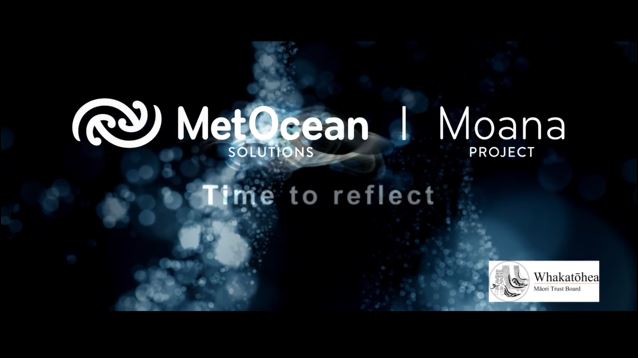Ocean observation project takes New Zealand from world trailing to world leading
The Ministry of Business, Innovation and Employment (MBIE) has awarded the Moana Project Gold Status for exceeding excellence and impact in their work. The project supports a sustainable seafood sector by advancing understanding of ocean circulation, connectivity and risks from marine extremes.
On this page
The Moana Project combined Te Ao Māori, crowd-sourcing ocean temperature through the seafood sector, innovative ocean sensing, and advanced numerical modelling to provide an accurate ocean analysis and prediction system.
Science Lead of the Moana Project at MetService, Dr Joao De Souza, said the project’s main goal was to improve ocean forecasting, particularly strengthening New Zealand’s ability to forecast marine heatwaves and discern the transport of commercially and culturally important kaimoana larvae.
Dr De Souza said New Zealand’s lack of integrated ocean observation meant the country was lagging behind other developed nations and the “blue economy” was being held back.
“For a marine nation, New Zealand knows very little about the coastal environment around us. Now because we can actually deploy these kinds of observations and modelling we have gone from being 15 to 20 years behind most developed countries, to now actually leading in this space,” he said.
Project Manager Dr Malene Felsing said the Moana Project took a “nation of oceanographers” approach and established a “ground-breaking” observation network on fishing vessels.
“We are crowdsourcing observations, which is a world first, and the whole world is looking at us. We are getting an enormous amount of attention for this because this is a real gap in coastal observations in all countries, and we are the first country to really solve this.
“Working with the fishing industry is a great milestone that not a lot of countries can do because it requires a lot of good faith and collaboration,” she said.
Dr De Souza said one of the great accomplishments of the project, was the ability to give the public very accurate forecasts to help prepare for extreme weather events.
He said this research is also giving insight into the impacts of climate change and what this will mean for hopes of expanding the aquaculture industry.
“Now that we can see those changes happening we can project that into the future and we can predict that some potentially serious impacts on aquaculture might come by the end of the century. This means we can provide information and tools that can be useful for people to actually plan,” he said.
Dr Felsing said the Government’s Endeavour Funding was “fundamental” to the success of the project.
“If we didn't have this funding, New Zealand would still have been behind every other nation.
“It was too ambitious and too big for any foreign institution to tackle on their own, so the funding was essential,” she said.
Dr De Souza said the project faced many challenges over its 5 years, but the biggest challenge is always the one in hand – and right now, that’s how to transition to a “post-project reality”.
“We built this beautiful system that’s really innovative and people are looking at us and our partners in Europe and USA are saying ‘you guys can't drop that, it’s amazing and what we wanted to do’, so we are trying figure out a way to keep going. That's the biggest challenge right now,” he said.
Moana Project reflections
Watch and hear what the Moana Project means to many of those involved, especially iwi partner Whakatōhea, in their own words.
Watch the Moana Project relfections video(external link) — Moana Project website


